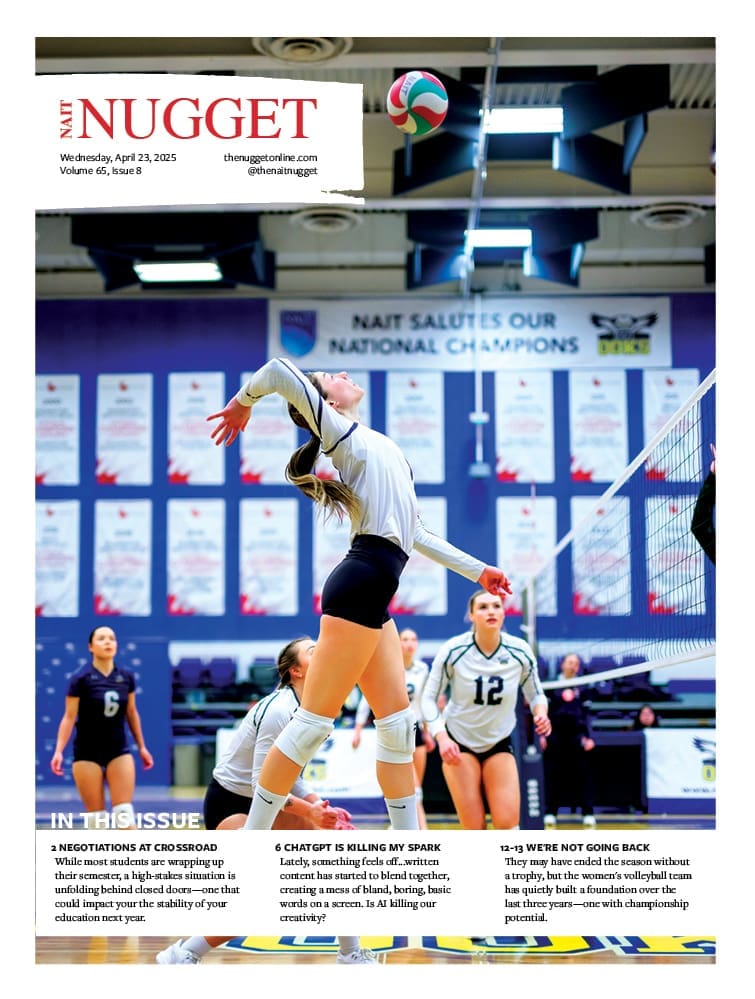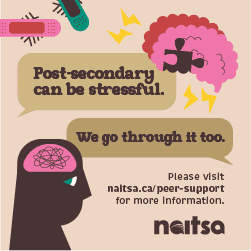I attended Aboriginal Culture Day on September 22nd. We started the day with a welcoming breakfast in the ceremonial room at the Nîsôhkamâtotân Centre (E121). Friends of the centre, students and working folks met and shared stories over a meal and coffee. Once the energies were up, we walked towards the grounds of the CAT building. A set of curated, heavy poles were laying in the ground and Elder Francis Whiskeyjack introduced guests to the ceremony of tipi raising.
The community was eager to help, and participate in the teachings behind the building of the tipi. “There are teachings behind every pole” highlighted Derek Thunder, facilitator of the event, and director of the cultural centre. The tipi raising ceremony, traditionally done by elder women, was open this time for students, staff and kids. People lined up and listened attentively to the guidance of the facilitator, while elders monitored the integrity of the structure, and outlined the details.

Once the tipi was raised, Elder Whiskeyjack inaugurated the space with a symbolic pipe ceremony. I thought the ceremony was uplifting, and was thankful for the many ways of teaching and learning that we, as human beings, are capable of doing. There was a reflection on the solidarity and social responsibility that is, and must be, crucial to teaching and community building.
Throughout the events, ‘teachings’ was the common denominator. The fundamental essence of NAIT is education, and as a plaque in the electrical engineering wing says, “making meaningful changes in life through education.” Like an 8 a.m. class, tipi raising involved listening, obedience and coordinated group action. Among nervousness and laughter, the teachers guided us through the journey, and educated us on the steps towards culminating a project.
Aboriginal Culture Day is the celebration of the history and stories carved in the soul of what is known as Alberta, Treaty 6 territory. A celebration of the ceremonies, foods, activities and dialogue spaces, which guided the development of aboriginal nations prior to, and during Canada. Although Aboriginal Culture Day does not specifically connect to the national holiday, Truth and Reconciliation, it coincides as a preamble to honouring the national commitment to truth and reconciliation. As Thunder said to CBC at the event, “Regardless of what happened in the history of Albertan people, we are still here and we should celebrate that.”






